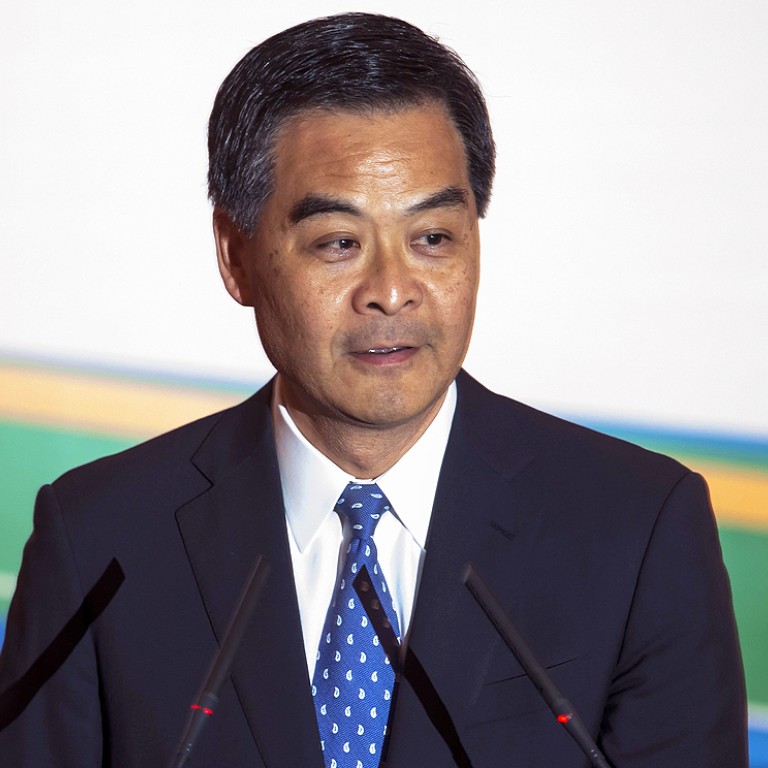
Beijing 'not behind leak of CY deal'
An authoritative source in Beijing dismissed speculation the central government was behind the leak of documents on a multimillion-dollar deal that plunged Leung Chun-ying in a political and legal crisis.
An authoritative source in Beijing dismissed speculation the central government was behind the leak of documents on a multimillion-dollar deal that plunged Chief Executive Leung Chun-ying into a political and legal crisis.
"The central government firmly supports CY and his government," the source told the yesterday.
Last week, Australia-based Fairfax Media revealed that Leung pocketed £4 million (HK$50 million) from Australian company UGL six months before he became the city's chief executive. UGL bought the insolvent DTZ Holdings for £77.5 million in late 2011. The property services firm was listed in London and Leung was a director.
A side deal arose from the purchase two days before Leung's resignation from DTZ took effect. It stipulated he would receive £4 million in 2012 and 2013.
The side deal raises questions about whether it was proper for a Chief Executive to have agreed to provide paid advisory service to a commercial entity and whether the deal harmed the interests of Royal Bank of Scotland (RBS), DTZ's main creditor.
Conflicting accounts have emerged from Fairfax reports in the past few days regarding the involvement of RBS and Ernst & Young, the administrator of DTZ.
Its report last week said DTZ chairman Tim Melville-Ross was not aware of the side deal, but yesterday another Fairfax report said documents suggested RBS and EY were "in full knowledge" of the negotiations of the deal.
However, RBS and EY have told the media they had no detailed knowledge of the side deal.
Lawyer Ludwig Ng Siu-wing, an executive committee member of the Restructuring and Insolvency Faculty under the Hong Kong Institute of Certified Public Accountants, said at this stage it was difficult to say who was lying.
But if RBS had no knowledge of and had not consented to the terms of the side deal for Leung, it would be a "victim" and could take legal action against Leung, Ng said.
Ng said that Leung, as a DTZ director, had a fiduciary duty that he would not put himself in a position of conflict of interest with the company. Since DTZ was insolvent, such duty is owed to the creditors - RBS - instead of its shareholders.
"You don't need to prove negligence or intent for breach of fiduciary duty. All it takes is a conflict of interest. It is clear there is."
Leung could be held accountable for his fiduciary duty even if other DTZ directors were involved in the negotiation of Leung's deal, Ng added. In that case, Leung would be required to return his interests to the creditors.
Bribery or conspiracy to defraud would be a much more difficult case to argue, Ng said, because an intent to deliberately deceive would have to be proven.
Had EY been aware of the deal, it would have had a professional duty to disclose it under Britain's Statement of Insolvency Practice.
"Pre-pack" transactions such as that used in the DTZ sale are a mechanism of corporate rescue which have become increasingly popular in the UK since the passage of the Enterprise Act of 2002, Ng said.
The major problem with pre-pack sales is a lack of transparency, as the appointment of the administrator and the sale itself are usually completely immediately in the same day.
"To prevent any injustice arising from the lack of transparency, there is a need for disclosure," Ng said.
Since Leung is not a British citizen or resident, he will not be liable under the UK Bribery Act, said Kate Blackwell QC, a lawyer with Lincoln House Chambers in the UK.
The UK Serious Fraud Office said it could neither confirm nor deny its interest in the case.
Aside from civil liabilities, Stephen Char, a barrister and former ICAC chief investigator, said that Leung may also face prosecution under the common law.
"He may have committed the common law offence of 'misconduct in public office,' because when he was elected chief executive the contract was still valid," Char said.
"He should have immediately rescinded the contract [on becoming chief executive], but he did not."

